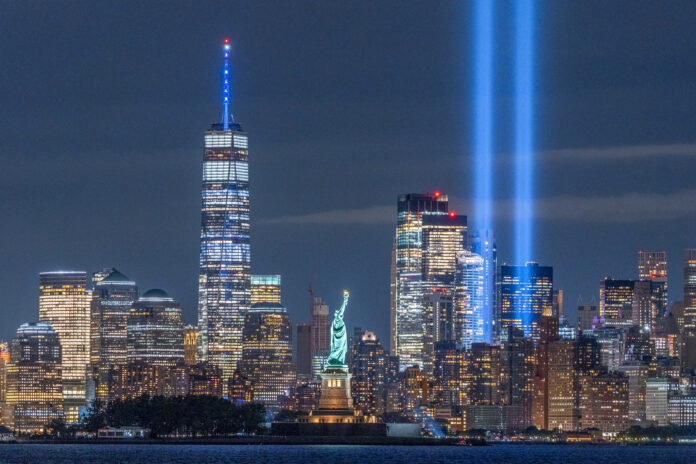USA Herald — Twenty-two years after the vicious terrorist attacks on September 11, 2001, the enduring aftermath remains inextricable from the memories and lives of thousands of Americans. On that infamous day, terrorist attacks on the World Trade Center and the Pentagon resulted in the deaths of nearly 3,000 people, leaving a wake of destruction that extended beyond the physical landscape into the complex web of U.S. financial systems. One segment of this financial web that took on a significant role in the aftermath is the insurance industry.
A Financial Quagmire
The 9/11 attacks weren’t just an emotional and psychological devastation; they led to a financial cataclysm unlike any the U.S. had ever seen in the wake of a terrorist act. With insured losses surpassing $32 billion, the scale of compensation and benefits to be distributed posed an unprecedented challenge. The previous largest insured losses from a terrorist attack were roughly 30 times smaller, making 9/11 an unparalleled case study in crisis management and financial liability.
A Patchwork of Compensation
To address this dire financial landscape, a multifaceted approach was instituted, incorporating insurance payments, governmental programs, and charitable contributions. Research data suggest that these mechanisms provided diverse groups of victims with a spectrum of benefits, although the effectiveness of each component has been a matter of scrutiny.
According to a report from the Rand Institute for Civil Justice, insurance companies shouldered more than half of the total amount paid out in compensation — 51%, or approximately $19.38 billion. Government and charitable organizations filled the rest of the gap. On average, victims received about $3.1 million per person, totaling $8.7 billion.
Incomplete Relief
While the figures seem substantial on paper, the reality is that money cannot fully compensate for the long-term emotional and financial repercussions faced by the victims and their families. Many victims were the primary earners in their households, meaning that their loss led to years or even decades of financial instability for their loved ones.
Compounding this is the grim reality of “bad faith conduct” by some insurance giants. In layman’s terms, bad faith conduct is the unethical act of intentionally denying an insured’s claim without just cause. This raises questions about whether insurance companies lived up to their societal obligation to provide reliable financial safety nets during unprecedented disasters.
An Unfolding Narrative of Accountability
Cases have emerged where insurance companies have been accused of employing dilatory tactics, unfairly reducing claim amounts, or refusing to pay even when documentation was meticulously submitted. Such conduct not only exacerbates the emotional and psychological trauma for victims and their families but also potentially creates long-term financial spirals that are difficult to recover from.
As it stands, while insurance companies did play an undeniably significant role in providing immediate financial relief following 9/11, concerns about whether they have done enough or acted in good faith persist. A host of lawsuits have been filed over the years, aiming to hold insurance companies accountable for what some argue is a failure to fully meet their obligations.
The Path Forward
Twenty-two years after 9/11, these issues remain relevant. Calls for stricter regulation on insurance practices and increased transparency are growing louder, emphasizing the need for a more accountable and ethical insurance industry, particularly in the wake of large-scale disasters.
As we commemorate yet another anniversary of the 9/11 attacks, this scrutiny serves as an important reminder that while tragedies can bring out the best in human cooperation and generosity, they can also expose deficiencies in our systems that need to be addressed. It calls into question the true role and responsibilities of insurance giants in the fabric of American society and highlights the ongoing journey for justice and financial stability for 9/11 victims and their families.
Thus, as we remember 9/11, let us also remember that the quest for justice is a continuous one. It’s not just about holding those who commit atrocious acts accountable but also about scrutinizing the institutions we rely on to help us recover from such acts.
It’s a long, ongoing road, one that demands continued vigilance in holding these powerful entities accountable for their actions, or lack thereof. For while the immediate wounds of 9/11 may have partially healed, the long-term financial and emotional scars for many families are still very much an open sore, demanding justice, accountability, and a future where no one is left behind in their time of need.
Reporting by Samuel Lopez | Legal & Insurance News Contributor for USA Herald






